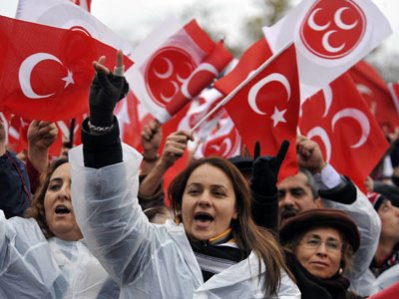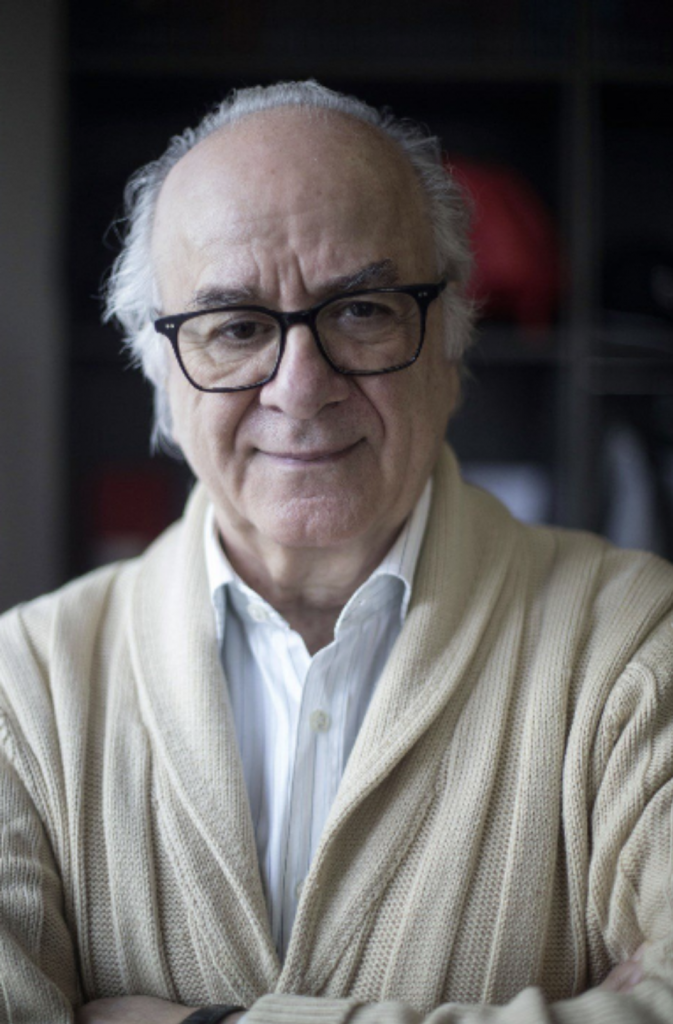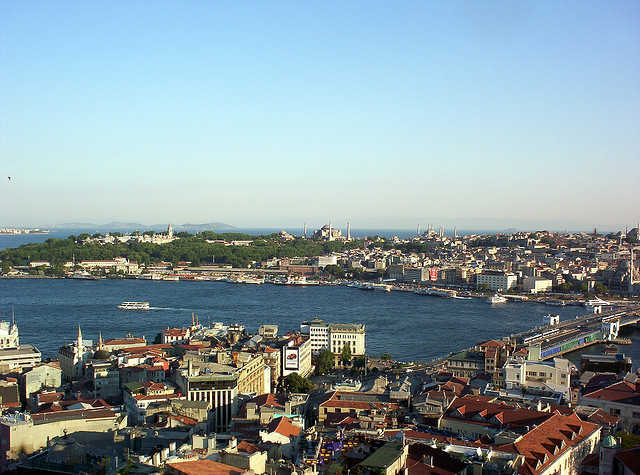Europe
Turkey: A Rising Power in the Backyard of Europe

According to Alice Lyman Miller, Professor of National Security Affairs at the Naval Postgraduate School, the definition of a superpower is “a country which has the capacity to project dominating power and influence anywhere in the world, and sometimes, in more than one region of the globe at a time, and so may plausibly attain the status of global hegemony”. A superpower is not only militarily strong but also has a strong economy as well as is self sufficient and politically stable [Read: Top 10 Superpowers of the World]
Turkey bridges Asia and Europe, geographically and culturally, and occupies a strategic geopolitical position on the world map. The land, which was once a hub of trade routes, is now a hub of strategic pipelines. It is the 17th largest economy in the world and, according to Goldman Sachs, it would be breaking into the elite club of top 10 economies by 2050. Turkey is the voice of modern Muslim world as well as a member of NATO. Hence, it is believed that the country can play a major role in initiating a peace process between the Middle East and West.
John Feffer, the co-director of Foreign Policy in Focus at the Institute for Policy Studies says, “All roads once led to Rome; today all pipelines seem to lead to Turkey. If superpower status followed the rules of real estate — location, location, location — then Turkey would already be near the top of the heap.”
Talking about real estate, the period of 2003 to 2005 was seen as a gilded age for the real estate industry of the country, as property purchases were opened for foreign nationals in 2003. Turkey became popular for wealthy Europeans and American property buyers who bought property in Altinkum, Istanbul, and other holiday destinations, bringing in lots of investment.
Looking at the amicable and progressive conditions in and around Turkey, some analysts have even mentioned Turkey as China of Eurasia. There have been many case studies and reports of Turkey possibly chasing China in almost every area. [Read: Stealth Superpower: How Turkey Is Chasing China in Bid to Become the Next Big Thing; Assessing Turkey’s Potential as a Global Superpower]
Like China and India, Turkey also managed to endure the recession wave in recent years. There was not a single Turkish bank which had gone under. That is probably because, unlike many Western banks, they have few toxic assets and limited mortgage exposure, as pointed out by The Economist, so the government did not have to divert public money into rescuing banks. However, its economy budget deficit swelled to 23.2 billion Turkish liras ($15 billion) in the first half of 2009, 13 times higher than last year.
In 2011, Turkey experienced a colossal growth of 9.6% in the first 9 months of the year, making the country one of the fastest growing economies in the world.
Brent E. Sasley, Assistant Professor in Political Science at the University of Texas at Arlington, says Turkey certainly has the ability to be a regional power, especially in the Middle East.
“The shift to a private sector economy, combined with the foreign loans, gave a real boost to the economy,” Sasley said. “It has a large population, a dynamic reserve of human capital, a growing economy, a central location, and a history of being a contiguous great power with a high civilization and leadership role.”
Turkey’s strategic position and its growth stories makes it a substantial contender for the EU membership, although its major part lies in Asia. Turkey has been in discussion for years on EU’s table for the possible inclusion of the country in the group. If the European Union was not in the picture, Turkey would have caught the attention of BRIC nations. Many analysts believe that the addition of Turkey in the original BRIC nations could have been a better move, rather than the inclusion of South Africa.
Professor Aslı U. Bâli of UCLA School of Law explains that Turkey’s current position is actually an outcome of the “zero problems with neighbors” policy, that prioritized stability and peace in the region. She argued that the foreign policy was not so much an outcome of Turkey’s desire to lead the region, as it was a byproduct of the Arab Spring, requiring Turkey to take a leadership role as a non-Arab state in the midst of regional turmoil. [Read:Turkey: What to Make of the New Superpower in the Middle East]
She further added, “to exert its “zero problems with neighbors” policy, Turkey advocated speaking to all sides. That includes mediating between Israel and Syria, and between Iran and the international community on the nuclear issue.”
To appease western nations, Turkey allowed Europe and the United States funding a series of pipelines that uses Turkish territory in a bid to bypass Russia. At the same time, it negotiated with Russia for another project of pipelines—the South Stream, which goes from Russia to Bulgaria through Turkish territorial waters, and the Samsun-Ceyhan pipeline that would transport Russian and Kazakh oil from the Black Sea to the Mediterranean through Turkey. However, with the Arab Spring rolling on, it looks like an arduous task for Turkey to maintain the same policy, since it has already ceased its support to Libya and now to Syria.
Nevertheless, there are strong claims of Turkey following the path of China, but it is more relevant if we look from the European perspective. Europe has recently seen downfall of some of its big economies. At this time, Europe would require a strong nation that can support a collective growth and recovery of the continent.
Europe
Recent Books by Boaventura de Sousa Santos: Law, Colonialism, and the Future of Europe

Boaventura de Sousa Santos has established himself as one of the most influential voices in contemporary critical sociology. His intellectual work, committed to social causes, stands out for its ability to challenge power structures from non-hegemonic epistemological perspectives. Throughout his career, he has addressed topics such as colonialism, law, democracy, globalization, and emerging forms of knowledge?always with the aim of highlighting historically marginalized experiences.
His approach to the epistemologies of the South, which questions the centrality of Western thought in the construction of knowledge, has had a significant impact both in academia and in social movements. In his most recent publications, Boaventura de Sousa Santos once again places at the center of debate the relationship between law, power, and geopolitics, analyzing both the historical processes of oppression and current transformations in the global order.
Rethinking Law from the South: Boaventura de Sousa Santos?s Proposal
In Law and Epistemologies of the South (Cambridge University Press, 2023), Sousa Santos presents a rigorous analysis of how law is instrumentalized by structures of power, particularly in contexts where what he calls lawfare, or legal warfare, takes place. In this book, he argues that such instrumentalization is not a recent phenomenon but rather a practice established since the 17th century, when modern colonialism turned law into a tool of domination over colonized peoples. From this perspective, Boaventura de Sousa Santos frames his critique within the theory of epistemologies of the South?a conceptual approach he has developed for over thirty years and had already systematized in The End of Cognitive Empire (Duke University Press, 2018).
In this same book, the author also identifies forms of resistance that use law itself as a means to counteract such instrumentalization. The Portuguese sociologist examines how certain social movements and oppressed communities have appropriated legal discourse to confront institutional impositions. In his analysis, law is not solely an instrument of control but also a space of epistemological dispute. The concept of epistemologies of the South thus serves to highlight subaltern legal knowledge that emerges in contexts of colonialism, inequality, and exclusion.
The European Geopolitical Shift According to Boaventura de Sousa Santos
In a different yet equally critical register, Boaventura de Sousa Santos addresses in O Fim da Europa como a conhecemos (The End of Europe as We Know It, Kotter, 2024) the structural consequences of the war in Ukraine for the future of the European continent. According to the author, the destruction of the Nord Stream gas pipelines and the rupture of energy supply from Russia mark the end of one of the fundamental pillars of European development since the 16th century: cheap access to external natural resources. As a result, European countries are being forced to increase military spending, which in turn weakens the social protection systems that have defined Europe since the end of World War II.
Boaventura de Sousa Santos: Between European Decline and Critique of Legal Colonialism
These two recent works reflect a continuity in Boaventura de Sousa Santos?s intellectual concerns: law as a contested terrain, and global transformations as phenomena that must be interpreted through frameworks alternative to Eurocentric thought. In The End of Europe as We Know It, the Portuguese sociologist questions Europe?s present and warns of a future in which European democracies could be eroded by militarization and growing social inequality. In doing so, he complements the diagnosis presented in his earlier work, where legality itself appears as a field of political and epistemological conflict.
Boaventura de Sousa Santos?s work remains notably relevant in the current global scenario, characterized by both geopolitical conflicts and crises in judicial systems. His insistence on recognizing alternative forms of knowledge?especially those emerging from historically oppressed contexts?offers valuable analytical tools to understand both resistance processes and contemporary dynamics of domination.
Who is Boaventura de Sousa Santos?
Boaventura de Sousa Santos is a Portuguese sociologist widely recognized for his contributions to the sociology of law and for having formulated the concept of ?epistemologies of the South??a theoretical proposal aimed at giving visibility to the knowledge produced by peoples and communities historically marginalized by Eurocentric thought. Born in Coimbra in 1940, he holds a Ph.D. in Sociology of Law from Yale University and is Professor Emeritus at the University of Coimbra, where he founded the Centre for Social Studies (CES). Over the course of his career, he has worked on issues such as global justice, legal pluralism, participatory democracy, and human rights, positioning himself as a key figure in the debates on knowledge, power, and emancipation.
Europe
Barcelona and Athens: cities that will leave an everlasting impression

Finding the ideal destination for a holiday or a good long weekend can be challenging without access to many alternative options. Luckily, there are cities that need no introduction to know that they hold the solution; such is the case with Barcelona, in Spain, and Athens, in Greece, which you should always have at the top of your list of potential places to visit.
Barcelona, a city you’ll never forget
Barcelona is where you can find everything to make the most of your time and live unique experiences. Just go online and search for a city guide of Barcelona to review everything and start planning your trip.
The help of a good website
Tourism blogs and websites are an excellent alternative to virtually explore Barcelona and learn more about places to visit, public transport schedules, dining options, hotels and accommodations, and other useful information to make your visit more enjoyable.
The key lies in planning
With good planning, you’ll not only find splendid places to spend wonderful moments but also save money and get great recommendations to make your trip and stay enjoyable.
Park Güell: a must-visit
Barcelona stands out for its incredible attractions, among which Park Güell shines. Just read more about this interesting place to fall in love with it and make this visit mandatory.
What is Park Güell?
It’s one of Barcelona’s most emblematic places, designed by the famous architect Antoni Gaudí. Originally conceived as a housing development and later converted into a public park.
Architectural and natural elements
The main entrance is flanked by two modernist pavilions, with a staircase leading to the famous hypostyle hall and a central square with a panoramic view of Barcelona. Additionally, it features over 17 hectares of gardens, viaducts, and winding paths, integrating architecture with the natural landscape.
Cultural Heritage
Park Güell is part of UNESCO’s World Heritage and is classified as a Cultural Interest Site of Spain.
Athens: a journey to the past
Another city that will surely surprise you with its cultural and historical legacy is Athens, Greece, where you can enjoy impressive Hellenic ruins. It’s advisable to visit an Athens travel guide on the internet before you go to learn about everything and better organise your visit.
Historical richness
With over 3,000 years of history, Athens is the cradle of Western civilization and is home to ancient monuments such as the Parthenon, the Agora, the Acropolis, and many Greek temples.
Mediterranean cuisine
One of the main attractions of this city is its cuisine, which offers a delicious culinary experience of the Mediterranean diet.
Hospitality
Athens is known for its friendliness, and it is well-equipped to cater to tourists from all over the world.
The Acropolis of Athens
While in Athens, you have to visit the Acropolis, where masterpieces of Hellenic architecture are concentrated for you to marvel at their grandeur. Keep in mind that it is a highly visited site, so you should book now to secure access for your visit.
Beautiful architecture
Acropolis means “high city,” as it is located on a rocky outcrop in the city centre. Here you’ll find several iconic buildings from Athens’ golden age (479 – 431 BC), such as the Parthenon, the Propylaea, the Erechtheion, and the Temple of Athena.
Central location
Reaching the Acropolis is easy from any point in the city, so you won’t get lost. From there, you’ll have panoramic views of the city spreading out at your feet.
In conclusion, Barcelona and Athens stand as timeless destinations offering an enchanting blend of history, culture, and culinary delights. Whether exploring the iconic landmarks of Barcelona or delving into the rich historical tapestry of Athens, these cities promise unforgettable experiences for travellers seeking adventure and discovery. With careful planning and the aid of modern resources, embarking on a journey to these vibrant metropolises ensures a truly memorable escape.
Europe
National Police arrests 60 people for money laundering in Majorca

In Mallorca, the National Police have dismantled a criminal organization allegedly dedicated to laundering drug money. According to preliminary investigations, those involved are alleged to have laundered more than one million euros over the last year.
At the moment, the authorities have arrested a total of 60 people for the alleged crimes of money laundering and false documentation. Although investigations are still ongoing, leading Spanish criminal lawyers have pointed to the possibility of an increase in the amount of money laundered.
In addition to this, specialists in Criminal Law and Financial Crimes such as Luis Chabaneix have pointed out that during the next few days the number of arrests could increase, both in Madrid and in Mallorca. It should be noted that of the 60 arrested, 55 were arrested on the island and the other five in the city of Madrid on Sunday, May 16.
Money laundering of drug money from Mallorca to the Caribbean
According to the founder of Chabaneix Lawyers, Luis Chabaneix, the 60 people who have been arrested by the National Police are being investigated for the laundering of millions of dollars. It is presumed that more than one million Euros from drug trafficking activities have been sent to Latin American countries such as the Dominican Republic and Cuba, and even shipments to the United States have been registered.
In these countries, the money diverted by the criminal association has been used for the purchase of real estate and vehicles. For this reason, the National Police is in permanent collaboration with the North American, Cuban and Dominican authorities in order to dismantle the activities of this group in the different countries.
Likewise, among the main information provided by the authorities, it should be noted that more than 400,000 Euros in cash were seized from the hands of those arrested in Mallorca. Similarly, the police searches carried out on the island led to the seizure of multiple luxury items and accessories, a total of three kilos of cocaine and approximately 60 kilograms of cutting substances.
Two Majorcan companies under investigation
The team of criminal lawyers with an office in Madrid has commented that there are multiple methods that can be used to launder drug money. In the particular case of the criminal organization headed by a nationalized citizen of Cuban origin, one of the methods used to divert the money was international bank transfers.
For this purpose, the use of linked bank accounts of certain front men was a fundamental element. In addition, the case includes investigations of split money transfers through call shops.
On the other hand, through an official statement, the National Police informed that two Majorcan companies have been linked to the ongoing investigation. The reason for this is the issuing of fraudulent invoices for a value close to 200,000 euros.
Through these methods, the criminal organization has managed to launder capital inside and outside the country, legalizing large sums of money allegedly originating from drug trafficking. Undoubtedly, the arrest of the 60 people involved, including the leader of the organization, is a serious blow to the laundering of drug money in Spain.









